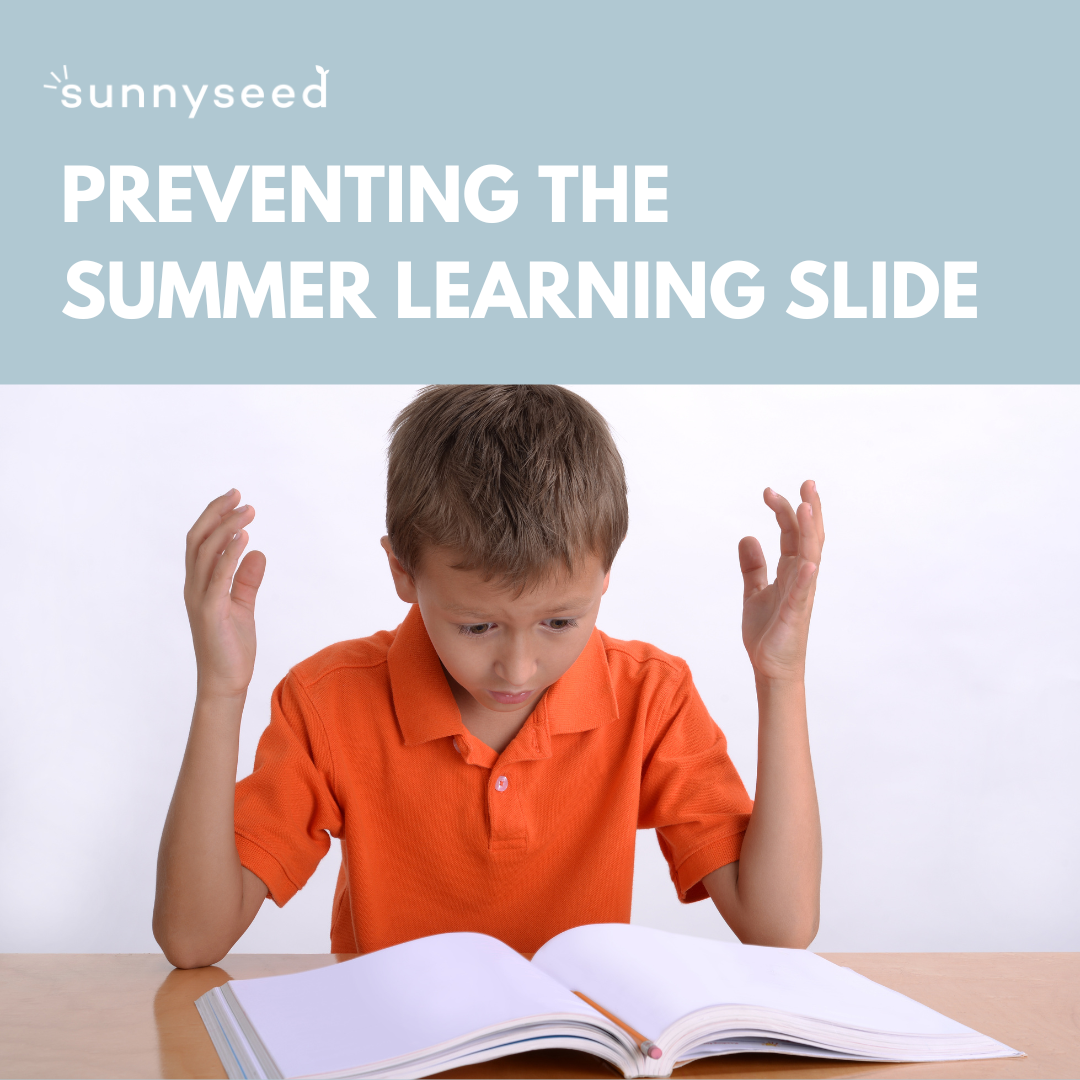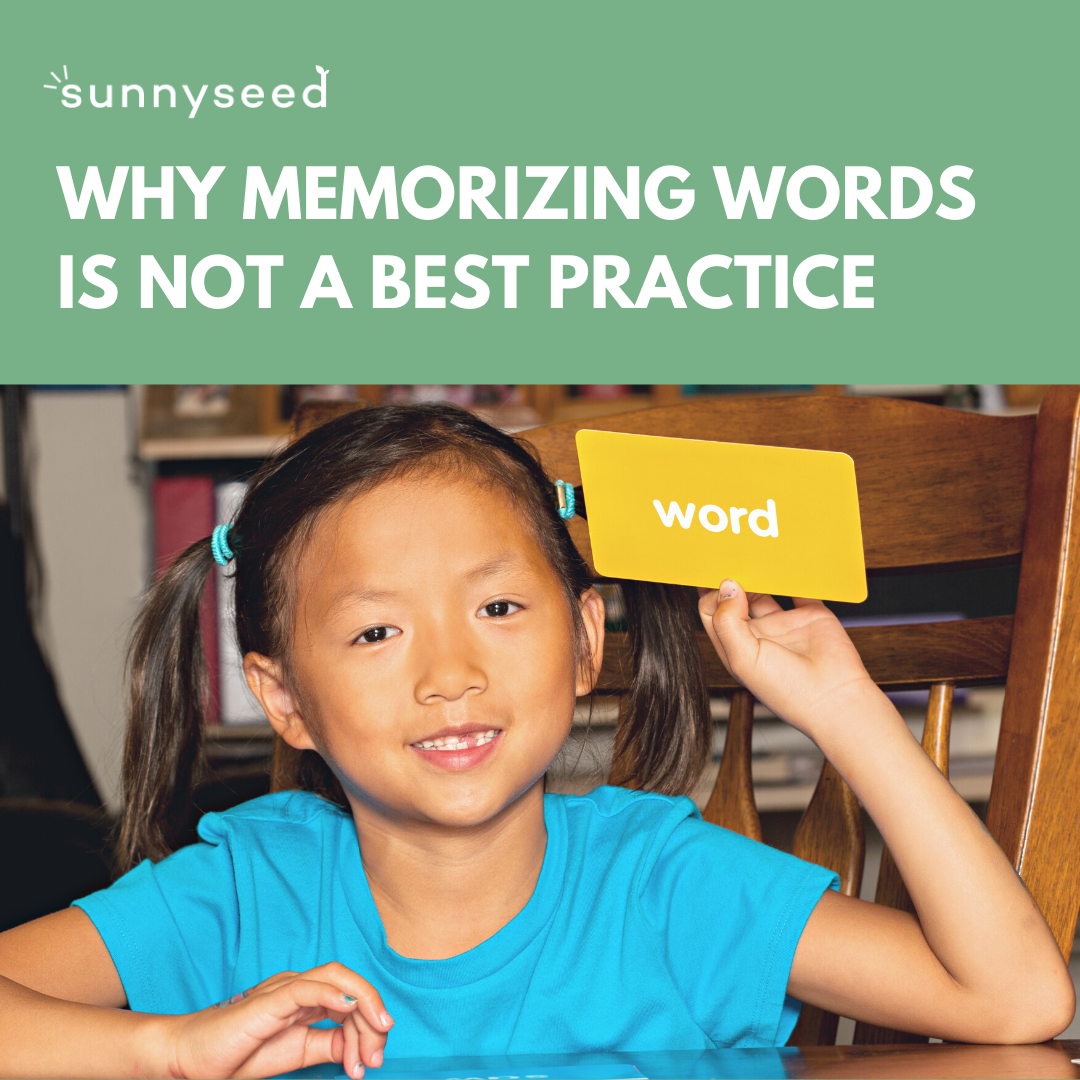Four Simple Ways to Enhance Language Skills With Babies & Toddlers
QUANTITY & VARIETY
Thankfully, parents don’t need fancy toys, flash cards, or computer programs to enhance language skills. Simply increase the quantity and variety of words your child hears with rich conversations! The best conversations come naturally following a child’s focus of attention. Conversations with your child benefit their language development, even before they can fully understand or respond to what you are saying.
To make it a rich language experience, try to:
Share genuine explanations
Repeat, repeat, repeat! “I’m going to lay you down and change your diaper. That’s a very wet diaper. This wipe might feel a little wet. Here’s your new diaper. Ooo, all clean.”
Describe something using different words: "The garbage truck is loud and rumbles."
Expand ideas and use new words: "Can you think of another truck that makes a lot of noise and ruckus?"
Come up with a story or spark your child’s imagination: "Where do you think the garbage truck is going to put all that trash?" or "What do you think the truck is going to do when he is all done collecting trash today?"
Add sounds: "This is a truck. “ttt, ttt, truck”; “rumm, rumm”; “honk, honk”
Make eye contact and facial expressions: "Woah, that startled me!"
Use everyday objects around the house to enhance language: pretend play sipping soup from a spoon, or use it to identify body parts “the spoon is on my nose. Now it’s on my elbow.” Practice concepts like “under,” “on,” “above,” “next to,” “behind, “in front of,” by simply playing with a ball and a cup.
Bottom line: tune into your child’s interests and strike up a conversation! Connecting with the people we care about makes learning meaningful.
PARENTESE
Parentese, also known as Infant Directed Speech (IDS), is characterized by high-pitch, slower, repetitive, emotional/expressive speaking to babies. Think baby talk, without the silly made up words. Studies show around 5 weeks, babies prefer parentese to regular adult conversations.
It takes babies twice as long as adults to process information, so an important feature of parentese is slowing things down. Babies learn language best when parents speak with their parentese voices and are face-to-face. The more parentese talk babies hear before the age of two, the more words they learn.
Researchers reported infant-directed speech, accompanied with eye contact, enhances activity in brain regions associated with auditory messages. Attempts using everyday, adult language had no such effect. In addition, the absence of IDS may contribute to speech delays in toddlers.
Parentese is not baby talk. Baby talk alters the spelling of words (such as “wook at the coot wittle baby drinking her baba”) and actually delays infant language development.
PARENTESE
Exaggerate sounds
Often lengthen vowels (“sooooo cute”)
Use shorter sentences
Take longer pauses
Uses regular words and grammar
Frequently uses repetition
Speak in a sweet tone, varying and raising the pitch
Articulate clearly
Use exaggerated facial expressions
Move their bodies rhythmically
Give positive feedback and loving attention in response to baby babble
Stresses unfamiliar words (“Kate, look at the pumpkin”)
Includes hand and facial gestures as babies get older (such as waving when you say hello or goodbye)
We naturally use Parentese when we sing nursery rhymes and read rhyming books.
TAKE TURNS
Conversations with little kids (even infants) is critical to their development. It’s one of the easiest things we can do to bond with our children and build their vocabulary. Dr. Dana Suskind, author of Thirty Million Words: Building a Child’s Brain, recommends the three Ts.
TUNE IN
Notice what the child is interested in or what they are doing and talk about that. Respond when they communicate.
TALK MORE
Talk about what you are doing and what the child is doing. Have real conversations with rich and varied vocabulary. Speak in full sentences.
TAKE TURNS
Keep the conversation going! Ask questions and give children time to think and respond. We can even do this with infants. Say something to your baby and then pause and wait. They may look at you or coo; respond and wait again. Engaging your baby as a conversational partner has enormous benefits for their brain development and attachment.
READ EVERY DAY
Books contain a higher variety of words, varied syntax, and grammatical complexity than the average college educated adult. Reading with your child every day will increase their language development.
According to a 2019 study by Ohio State University, the more a child is read to in the first five years of their life, the more vocabulary words they will acquire. Here’s how many words a child will have heard by the time they are five years old if they have been read to:
0 times : 4,662 words
1-2 times per week: 63,570 words
3-5 times per week: 169,520 words
1 book daily: 296,660 words
5 books daily: 1,483,300 words
AVOID SCREEN TIME BEFORE 2
The AAP recommend zero screen time for children under 18months and very limited screen time for children 2-5 years old because of the way screen alter developing brains.
“The newborn brain triples in size in the first two years of life and it does this in direct response to external stimulation. When television is on, or a screen is on, the child is engaged in watching that program and the parent is talking to their child 80% less of the time. The talking time is really critical for a child’s language development, because hearing words and hearing their parents talking to them is helping them understand the language and grow their communication skills. Making use of those times when you’re busy doing something else is really valuable time for a child.” – University of Washington professor of pediatrics Dimitri Christakis
“Educational Shows”
Did you know in 2007 there was a big uproar over baby videos, specifically Baby Einstein videos? A study found infants who watched baby videos had a significantly smaller vocabulary than those who had not watched the videos. Well meaning parents believed these videos would make their children smarter. In fact, their was a major lawsuit against Disney/Baby Einstein for making such claims. Several research studies were completed in response, and again the data showed the more children watched, the worse their vocabulary.
Similarly, some parents believed playing the radio, audio books, or foreign language tapes to young infants would help them acquire a greater vocabulary. A study by Kuhl found infants’ brains absorbed none of it, despite seeming engaged. Why?
There are two main reasons why screens and audio do not work for language and brain development:
1. Babies learn to decipher speech partly by lip reading. Before a baby can understand any word meaning, they must understand when a word ends and another word begins. This is called segmentation. Around 7.5 months, a baby can segment speech of people speaking to them, but if they hear speech while looking at something other than an actual face, the speech is endless gibberish.
2. INTERACTION – A video can’t interact and respond to the sounds a baby makes. There is over a decade of research that highlights the significance of responding in the moment to infants and toddlers. A study found that when four-month-olds and their parents practiced vocal turn taking, those children would later have greater cognitive ability. Another study found babies and toddlers of high-responders were six months ahead of toddlers of low-responders. How a parent responds to a child’s vocalizations – right in the moment- is the most powerful tool pulling a child from babble to fluent speech. Showing affection to children when they babble also rewards their attempts and increases the frequency and maturity of the babble- something tv can’t do.













